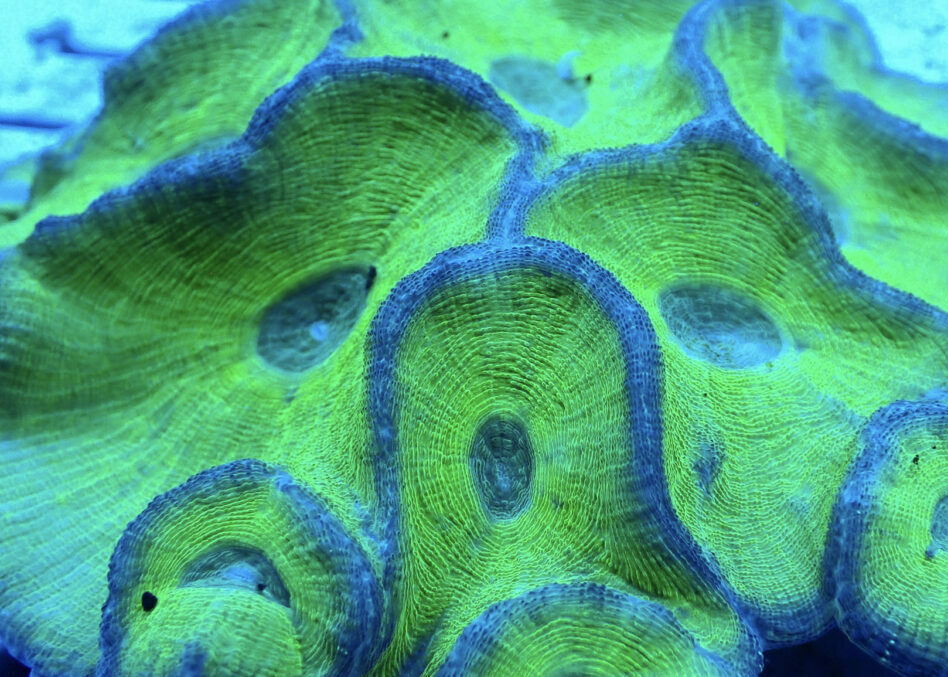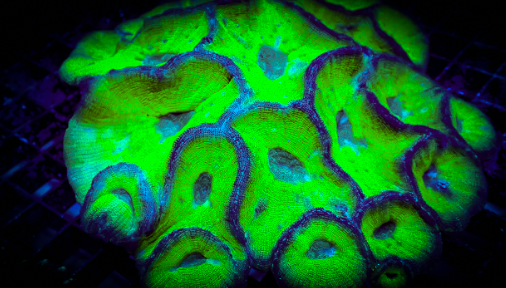Moseleya latistellata

The Moseleya latistellata, also known as the Giant Star Coral or simply the Moseleya Coral. This coral is unique and tends to be overlooked in the realm of reef aquarium hobbyists, despite its captivating appearance especially the toxic green variety which can be a stand out piece. Their beauty is especially highlighted under blue, fluorescent night lighting.
Moseleya Corals are characterized by their large, cup-shaped corallites that give colonies a warped or melting disc-like appearance.? Similar to the bowerbanki large warped corallites. ? These corals can sometimes grow like a chalice coral, adding to their distinct visual appeal.
These corals are native to the Australia. They inhabit shallow turbid/muddy areas and are usually seen at depths between 3 to 30 feet. The Moseleya Coral is related to Moon Corals, further adding to its uniqueness.
In terms of care, Moseleya Corals thrive best when water values are good. They are quite hardy and adaptable, making them suitable for various aquarium conditions.
Basic Water Parameters
pH
8.0 to 8.3
Salinity
34 - 36ppt
Temperature
24.0 - 26.0 Celsius
Husbandry Requirements
Lighiting
Not Found
Flow
Not Found
Aggressiveness
Not Found
Acclimation Guide
- It is highly recommended to acclimate all corals to a new environment to prevent shocking corals.
- Place the corals in the water from the packing bags and slowly add the water from new environment (Dripping method is recommended).
- Use the water parameter above as a guide.
- When the vessel becomes full , replace the water with the new environment water by a small amount at a time.
- Ensure the water temperature matches with the new environment’s water.
- After the corals have spent adequate time in the acclimation water, gently place the corals to a new environment.
- It is recommended to place new corals under lower light intensity than usually required. Once corals show no signs of stress, it can be moved to higher lighting area gradually.”


